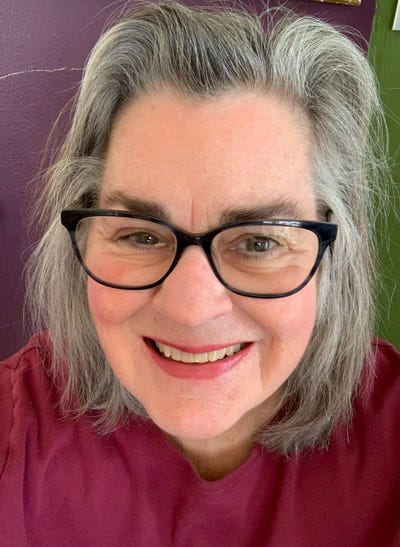April 24, 2008

 The bottles for the Avalon Organics hair care line have a seal that says "70 percent certified organic ingredients." Kiss My Face's Obsessively Organic personal care line seals read "made from certified organic ingredients."
The bottles for the Avalon Organics hair care line have a seal that says "70 percent certified organic ingredients." Kiss My Face's Obsessively Organic personal care line seals read "made from certified organic ingredients."
Are the seals accurate? The companies say so, but the federal government doesn't have an opinion.
Retailers who think the whole organics labeling issue was settled in October 2002, when the U.S. Department of Agriculture implemented the National Organic Program and the USDA organic seal, are in for a surprise. The NOP announced in May 2002 that cosmetics were part of the organic labeling discussions, but when the NOP final rule was issued, it stated that regulations were not going to include cosmetics, body care products and dietary supplements. To complicate matters, says Tim Schaeffer, spokesman for Petaluma, Calif.-based Avalon Natural Products, "confusion exists over the jurisdiction the [USDA] has on cosmetics since, historically, it has been the responsibility of the Food and Drug Administration."
Although NOP standards state that a food product must consist of 95 percent or more certified organic ingredients to be labeled organic, and at least 70 percent organic ingredients to be labeled "made with organic ingredients," some personal care manufacturers abuse those standards, according to the Salem, Ore.-based organic certification agency Oregon Tilth. The Oct. 15, 2002, issue of Oregon Tilth's In Good Tilth says beauty care product manufacturers "continue to label products with less than 70 percent organic ingredients as 'made with organic.'"
Joe Beck, buyer for the Rocky Mountain western region of United Natural Foods Inc., says "only a handful" of personal care lines have given UNFI organic certification documenting their product ingredients. "As far as personal care goes, it's not happening as it is in grocery," he says. UNFI requires certification to document products or ingredients as organic in its publications and catalog.
Standards Ready This Year
Avalon Chief Executive Mark Egide and the Greenfield, Mass.-based Organic Trade Association have formed a task force to make recommendations for personal care standards to the USDA. According to OTA Associate Policy Director Tom Hutcheson, the task force was scheduled to have materials and processing criteria for health and beauty products completed in February, and a standards document ready to send to OTA's quality assurance committee in the spring. The committee plans to have personal care organic standard recommendations ready to go to the OTA board of directors by this fall. If approved, the standards would then be sent to the NOP for evaluation.
"We're working hard to keep the standards fair and equitable to everybody," says Shelley Rubenstein, a task-force member and advertising and promotions manager for Nature's Gate in Chatsworth, Calif. "It's a growing industry and we want it to continue to grow. We don't want to strangle-hold it, but by the same token we want to leave standards high so that organic means something."
 Currently, the only piece of legislation regulating the use of organic claims on personal care product labels is the California Organic Products Act of 2003. The act follows NOP regulations, stating that cosmetics sold in California can only be labeled "made with organic ingredients" if they have at least 70 percent certified organic ingredients (excluding salt and water). The California act also follows the NOP food regulations in determining which personal care ingredients—such as herbs—are grown organically.
Currently, the only piece of legislation regulating the use of organic claims on personal care product labels is the California Organic Products Act of 2003. The act follows NOP regulations, stating that cosmetics sold in California can only be labeled "made with organic ingredients" if they have at least 70 percent certified organic ingredients (excluding salt and water). The California act also follows the NOP food regulations in determining which personal care ingredients—such as herbs—are grown organically.
It's not that manufacturers don't want their personal care products to be 95 percent or even 100 percent organic, Avalon's Schaeffer says, it's that cosmetic processing and preservative requirements are different from the food standards covered under the NOP. Avalon Organics' Organic Herbal Nourishing Shampoo, for instance, has certified organic lavender, nettle, sage, wild thyme, aloe and jojoba oil, but the surfactants (ingredients that lather and clean the hair), preservatives and vitamins are processed using natural and synthetic ingredients.
TerrEssentials, a Middletown, Md.-based personal care products manufacturer, makes 100 percent organic body oils and creams, but other products contain ingredients such as clay that aren't certified organic. Diana Kaye, TerrEssentials partner, says sometimes consumers have to make compromises if they want organic products. For instance, Kaye points out, it's possible to wash hair with castile soap and a vinegar rinse—provided you just want your hair clean. People whose hair has been damaged by perms or coloring may get better restorative results from a less natural product.
"You can't expect us to bend [organic] rules to make synthetic detergent products that make chemically treated hair shiny or less coarse," Kaye says.
It also costs 25 percent to 30 percent more to use organic ingredients, Kaye says. "It's more expensive because it's made from real food ingredients."
There are several problems unique to health and beauty products that aren't allowed under the NOP organic food regulations. Issues the OTA personal care standards task force is wrestling with include:
Preservatives: Soil Association Certification Ltd., the Bristol, England-based organic certification agency, concluded when it released its health and beauty care standards last year that "for safety and hygiene reasons, it is sensible to allow some preservatives."
But Emily Goetz, Kiss My Face's Obsessively Organic brand manager, says her line is preservative-free and has a shelf life of a year to 14 months. "There are a lots of things that go into keeping the product fresh. The pH level is low, which does not allow bacteria to grow. The water used in the products goes through an extensive treatment process so that bacteria cannot grow in it." Obsessively Organic products also contain essential oils that Goetz says have preservative qualities, and antibacterial ingredients such as tea tree oil, peppermint and clove.
Avalon's Schaeffer advances a different theory. He says personal care products that use preservatives made solely from organic ingredients, such as citrus extract or essential oils, have a shelf life of only 120 days. Consequently, Avalon and some other manufacturers rely on parabens or natural substances, such as coconut oil, that are processed with synthetic ingredients. These synthetic preservatives give a product a shelf life of about two years.
Some companies says their products have no added preservatives, but that's misleading, Schaeffer says. "The ingredients they buy are preserved, like chamomile with methylparaben."
Goetz says Kiss My Face processes its own herbs, but she wouldn't reveal what ingredients are used in the process, saying the information is proprietary.
Processing: "You could have a coconut preservative, but the process could burn oil or release formaldehyde as a byproduct," Schaeffer says.
He says processes the OTA task force is evaluating include esterification, which is taking a vegetable ingredient and adding something, such as acid or alcohol. This process produces products like tocopherol, which is a vitamin E that is more stable and doesn't break down as easily as its unbuffered counterpart, he says.
Transesterification, or joining two ingredients such as vegetable oil and glycerin, is another process under evaluation, as is hydrogenation, which is adding hydrogen to a fat to harden it. There's also sulfation, or adding sulfur to an ingredient to make it foam and lather.
Extraction: Manufacturers don't count water as an ingredient when evaluating a personal care product's organic content. This is significant, because many health and beauty care products are more than 50 percent water, and that water can come from any source. Herbs extracted with water may have little herbal content compared to the amount of water used, but the entire water-herbal mixture counts as organic provided the herbs were grown organically.
"The issue isn't necessarily which (extraction process) is better, but to agree upon one method so there is uniformity among manufacturers," Schaeffer says.
TerrEssentials avoids this issue by using herbs extracted with certified organic grain alcohol. "It's expensive, though," Kaye says.
Kaye believes the effort to develop organic personal care standards is key, even though consumers may not understand their importance. "People believe body care is regulated, and when they see the word organic, they think that means no synthetic chemicals and that we don't need to have another set of standards," she says.
Vicky Uhland is a Denver-based freelance writer. She may be reached at [email protected]
Natural Foods Merchandiser volume XXIV/number 3/p. 90, 92, 96
Natural Foods Merchandiser volume XXIV/number 3/p. 92
About the Author
You May Also Like
.png?width=700&auto=webp&quality=80&disable=upscale)





